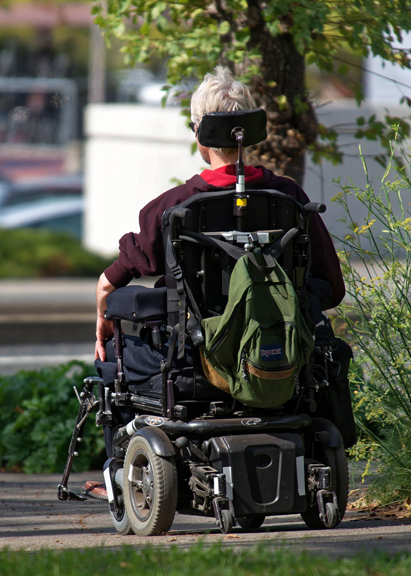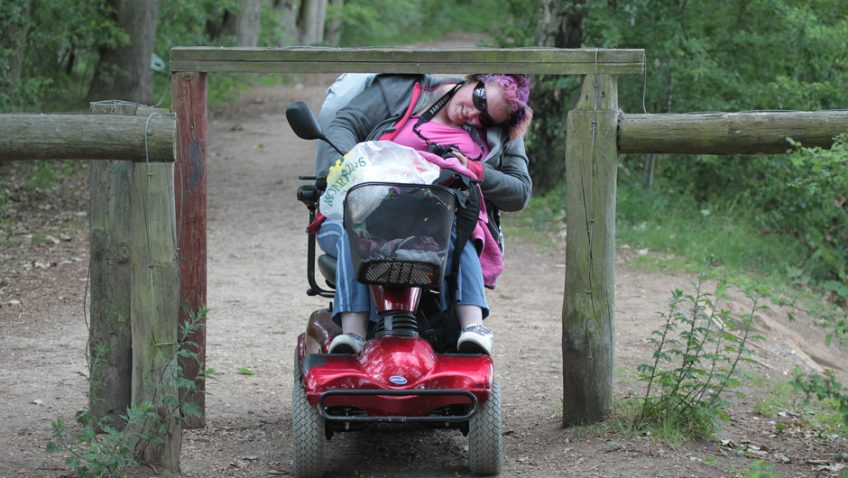A new training video is being developed to improve road safety for first-time mobility scooter users.
The project, being led by psychologists at Nottingham Trent University, will provide mobility scooter users with guidance on the type of hazards they may face, how to spot them and how to prepare for them.
Experienced and inexperienced mobility scooter users are being invited to drive along a planned route as part of the project, with cameras recording the view from the user’s perspective and eye-tracking technology used to show what the driver is looking at.
 The researchers are also inviting mobility scooter users to share their personal experiences.
The researchers are also inviting mobility scooter users to share their personal experiences.
In particular the study is focusing on the behaviour of mobility scooter users at road crossings and the difficulties they may encounter.
There are currently between 300,000 and 350,000 people using mobility scooters in the UK. This number is expected to rise up to 10 per cent per year.
However, in 2014 there were more than 200 reported mobility scooter-related collisions in England and Wales, nine of which were fatal.
Dr Duncan Guest, a psychologist in the university’s School of Social Sciences, said there was a need to introduce optional training for users.
He said: “There are a number of health and wellbeing benefits associated with using mobility scooters, such as increased independence and improving self-esteem.
“However, these benefits might not be realised if someone uses a scooter for the first time and gets into a difficult situation. Our aim is to improve the safety of new mobility scooter users and reduce potential collisions.”
The video will be created using a combination of real-time and staged footage.
The real-time footage will be produced by filming experienced and inexperienced mobility scooter users following a route around Nottingham city centre.
They will deal with a variety of road crossings along the way, which could have potential hazards.
High Definition cameras will be attached to the mobility scooters to show the driver’s perspective, along with mobile eye trackers or video glasses to record what the driver is looking at.
Afterwards, researchers will interview participants about their experiences of the route and they will also analyse footage to create the training video.
Copies of the training video will be sent to Shopmobility outlets and other mobility charities.
Dr Guest said there was a lot more to a safe mobility scooter experience than simply understanding the controls.
“Whilst handling is important, we think it is vital that users also receive information about the types of hazards they might encounter and advice on how to deal with these,” he said.
“To date, no-one has asked mobility scooter users about these, and we think that engaging with this community and developing a training tool will be really beneficial for new scooter users by improving their safety and their experience.”
Nottingham Trent University has received a £89,000 grant from the Road Safety Trust for the project.
As part of the work researchers are asking mobility scooter users to complete a questionnaire about their experiences of driving.
Experienced and inexperienced scooter users are also being sought to drive along the pre-planned route in Nottingham city centre.
Anyone interested in taking part in the project should contact Georgina Gous on 0115 8482701 or via email georgina.gous@ntu.ac.uk
Those who complete the questionnaire have the chance to win £100. Anyone who completes the route around Nottingham, can earn up to £20 in shopping vouchers.



